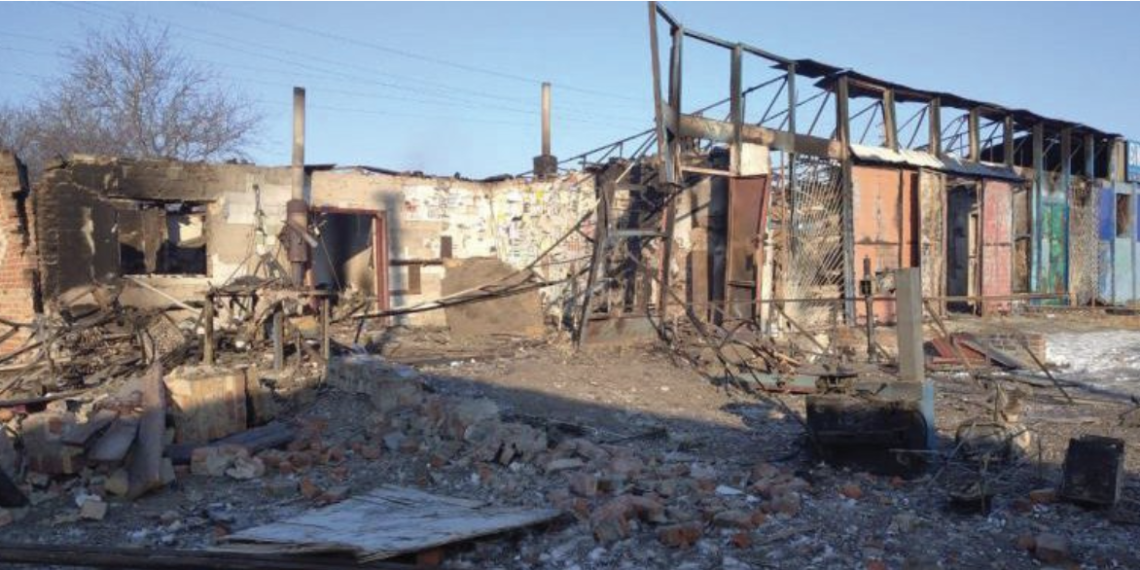By Anca Voinea
Since the Russian invasion, the all-Ukrainian union of consumer co-operatives (Ukrkoopspilka) has been working tirelessly to provide products and services to members and customers, offer shelter to those displaced and bake bread to feed local communities.
Some of these efforts were described in reports by Coop Ukraine’s co-operative newspaper “Visti”, which collects and records information about how the movement is helping the nation cope with the conflict.
In addition to the retail sector, Ukrainian co-operatives can be found in the financial, agricultural, food and energy sectors. Coop Ukraine runs restaurants and hotels and operates co-operative markets. The country is also home to two co-operative universities, 19 colleges and two institutes and a co-operative publisher.
“The war has had an impact on every inhabitant of Ukraine, on every sector of the economy. But we still do not have information about the misfortune caused by the war on other co-operatives,” says Illia Gorokhovskyi, chair of Coop Ukraine. “The situation is very difficult in cities that have recently been liberated from occupiers – I am talking about Chernihiv, Irpin, Bucha, Hostomel, Sumy.
“Mariupol is also our great pain; the city is practically destroyed. I am constantly in touch with the leaders of the unions of consumer societies from these regions. People, who have gone through the hell of the Russian aggression, have experienced extreme torment and pain. Objects of consumer co-operation in such regions also suffer significant damage; the infrastructure is being destroyed.
“But all this cannot be compared with the pain and emotional trauma experienced by our people. We will find funds, we will repair the destroyed shops, but who will work for them if people have nowhere to return, because their houses are destroyed, there is no water, electricity?”
In the west of the country, which has been less affected by the conflict, consumer co-op stores continue to operate. Supply chains were disrupted but “all these issues have been resolved, co-operative stores provide people with basic food,” says Mr Gorokhovskyi.
The region also welcomed more than 10 million displaced Ukrainians from the east of the country. Many provided food and accommodation to those displaced while retail co-ops switched to a 24/7 schedule to be able to meet demand for bread and to feed the military.
“Our people worked as long as necessary, no one said that they had exceeded the hours of work established by law. Many volunteered … In such a difficult time for Ukrainians, there is no question: how many hours should I be at work? The question is different: what can I do as much as possible? There are many examples of our workers taking refugees into their homes.”
Co-operative educational institutions in regions that have been less affected by the war have also welcomed displaced Ukrainians to their student dorms while others received staff and students from other regions, enabling them to continue operating from their premises. Students from co-operative colleges volunteer and some teachers and graduates have joined the military.
“There are dead among the co-operators. All of them are our pride and our pain. The names of our courageous, brave, best will always be imprinted in memory,” says Mr Gorokhovskyi.
Coop Ukraine is a member of Euro Coop, Cooperatives Europe and the International Co-operative Alliance, through which it is able to engage with co-operators in other countries. “I want to thank the leadership of Euro Coop, Cooperatives Europe, and the International Cooperative Alliance”, says Mr Gorokhovskyi, adding that the three organisations had responded “in a timely manner and with great understanding”.














































